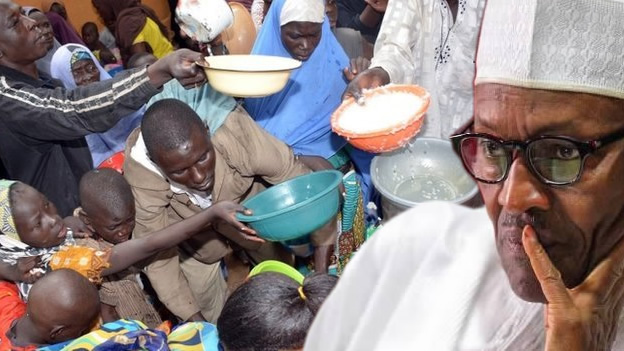
MAIDUGURI, Nigeria – The United Nations World Food Programme (WFP) has had to scale back plans for emergency feeding of 400,000 people in Boko Haram-hit northeast Nigeria due to funding shortfalls, a top U.N. official said on Wednesday.
The decision to cut aid for some believed to be on the brink of famine comes as the onset of the annual rains threaten to exacerbate the humanitarian crisis. Farmers have been unable to plant or harvest crops for years due to the Islamist insurgency.
“The plan was from the beginning to reach 1.8 million (people) this year but due to the funding constraints WFP has been forced to come up with a contingency plan,” said Peter Lundberg, the U.N.’s Deputy Humanitarian Coordinator in Nigeria.
The WFP is now focusing on supplying 1.4 million people deemed to be most at risk, with assistance for the remainder cut by around a third, Lundberg told Reuters in Maiduguri, capital of the hardest-hit state of Borno.
The U.N. says it needs $1.05 billion this year to deal with the crisis – one of three humanitarian emergencies unfolding in Africa – but has only received just over a quarter of that.
The reductions in Nigeria come a month after the WFP halved the monthly rations of more than 800,000 South Sudanese refugees in northern Uganda because of a lack of funds.
MAROONED
More than 20,000 people are thought to have died and 2.7 million have been displaced in Boko Haram’s bloody eight-year battle to establish a medieval Islamic caliphate.
Two years ago, the group controlled an area the size of Belgium but a military push by Nigeria, Chad, Cameroon and Niger has ejected the militants from cities and major towns.
However, according to the latest U.N. assessments, huge swathes of land remain no-go zones, even with military escorts. As many as 700,000 people might still be trapped in these areas, Lundberg said.
The rainy season also makes it harder to bring in emergency supplies of food and medicine as dirt roads turn to rivers of mud for up to three months.
“Some of these places will be completely locked in because of the rain,” Lundberg said. “When the rain comes, we know there will be very big challenges.”
Furthermore, aid agencies have been prevented from building up large supply centres outside cities such as Maiduguri for fear they will be attacked.
In the town of Rann near the Cameroon border, nearly 50,000 people are about to become marooned with only two weeks’ supply of food to hand, said Dana Krause, an emergency coordinator for the Swiss arm of the aid agency Medecins Sans Frontieres (MSF).
“The populations along the border are pretty much entirely dependent on external aid,” Krause said. “And by the end of July, Rann will literally be an island.”
As a last resort, a WFP spokeswoman said it was considering air drops for the most inaccessible areas.
Nigeria’s military did not respond to a request for comment.
Source – Reuters

